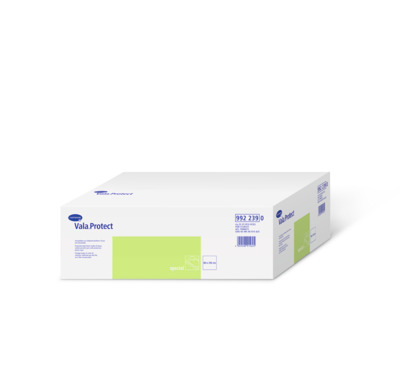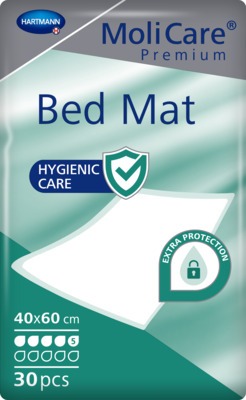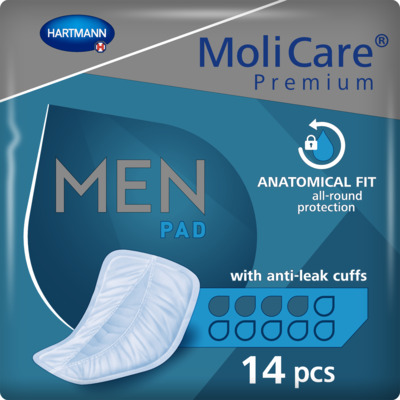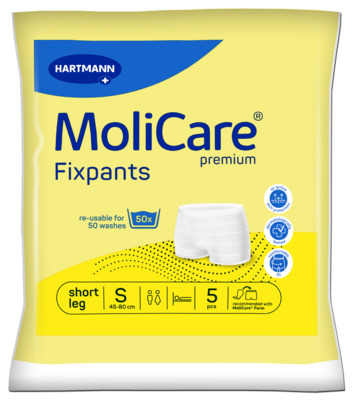Incontinence Advice
Bladder Friendly Drinks - The Best Drinks To Stay Hydrated and Help Incontinence
The NHS states that you should drink at least 6 to 8 cups of fluid per day, which equates to about 1.2 litres. But what are the best bladder friendly drinks to choose? Here are the best drinks to help with incontinence, plus some that you should avoid to keep your bladder healthy.

Best Bladder Friendly Drinks
There’s plenty of advice for dealing with symptoms of incontinence - from wearing the right incontinence pads to exercising regularly - but have you ever considered that what you drink is having a major effect on your incontinence symptoms? Your diet can seriously affect your incontinence, leading to an irritated bladder and worsened symptoms, and drinking the wrong liquids can have equally adverse effects.
Ensuring you drink plenty of liquids is vital to managing incontinence, but you must make sure that you are drinking beneficial liquids. Here are five of the best bladder friendly drinks that you can choose to hit the recommended fluid intake without irritating your bladder.
Water
Water is almost always the best drink to reach for. Drinking water can bring so many benefits to the body, including:
- Flushing the bladder of bacteria
- Aiding digestion
- Preventing constipation
- Regulating body temperature
- Protecting organs and body tissue
However, one of the main benefits of drinking water is that it keeps you hydrated and ensures your urine isn’t too concentrated. Concentrated urine can irritate your bladder, leading to an increased urge and frequency to urinate. Drinking enough water will help decrease the risk of leakages and the amount of urine you produce, making your incontinence management easier.
If water is too plain for your taste, you can try adding some fruit to add flavour. For example, slices of lemon, lime or cucumber are great for adding some extra taste to plain water.
Bladder friendly drinks
- Links
- The Best Bladder Friendly Drinks
- Diluted Fruit Juices Or Cordial
- Decaffeinated Tea and Coffee
- Herbal Tea
- Green Tea
- Drinks To Avoid With Incontinence
- Alcohol
- Carbonated Drinks
- Caffeinated Drinks
- Milk
- Hot Chocolate
- Foods To Avoid If You Have Incontinence
- Make Beneficial Changes To Your Diet Today
- Sources
Incontinence Product Finder
Selecting the right products is key in ensuring security and discretion. If you’re not quite sure what you need, try our product finder. It’ll ask you a few questions about your needs and then provide a list of recommended products that may help you.
Find Product Incontinence Product FinderDiluted Fruit Juices Or Cordial
Although some experts generally recommend you don’t drink fruit juices due to their sugar and calorie contents, diluted fruit juices or cordial can be beneficial in other ways. Drinking certain diluted fruit juices can provide your body with plenty of beneficial antioxidants and help to balance the bacteria levels in your bladder. You should enjoy diluted fruit juices in moderation, though, since having them too much can be as bad for you as drinking regular fruit juices. Some of the best fruit juices to dilute and drink with incontinence are:
- Pear juice
- Apple juice
- Pomegranate juice
However, try to avoid acidic fruit juices, as these can irritate the bladder. Some common acidic fruit juices are:
- Cranberry juice
- Grapefruit juice
- Orange juice

Decaffeinated Tea and Coffee
Caffeine is a diuretic, which means it can lead to an increase in the frequency of urination. Plus, if you drink it excessively, it may also increase your urge to urinate. So, it’s best to avoid drinks with high levels of caffeine, such as tea and coffee. However, you don’t have to completely remove them from your diet – you can opt for decaffeinated versions instead. Decaffeinated drinks are less likely to increase the frequency and urgency of urination and will not be as irritating to your bladder.
Herbal Tea
Certain herbal teas can help to clear the bladder of any irritants, ensuring that your bladder remains healthy and functions properly. Many herbal teas are naturally caffeine free, so they may not irritate the bladder or increase urination. However, some herbal teas such as yerba mate tea are naturally caffeinated, so it’s best to avoid this. Some of the best herbal teas that you can drink to help your incontinence include:
- Mint
- Chamomile
- Lavender
- Horsetail
- Corn silk
- Saw palmetto
Green Tea
Studies have explored the benefits of drinking green tea when you have incontinence, and results indicate that green tea can have favourable effects on the bladder. However, green tea does contain caffeine, so you should drink it in moderation. Additionally, the supplements in green tea have been proven to reduce inflammation of the urinary tract, and experts believe that it could therefore be a possible option for other inflammatory bladder conditions.
Drinks To Avoid With Incontinence
Unfortunately, if you don’t want to irritate your bladder when you have incontinence, there are some drinks that you should avoid. Some popular drinks are diuretics, which can affect the urgency and amount of urination, while others can severely irritate the bladder. If this is the case, it’s best to remove these drinks from your diet altogether.

Alcohol
Alcohol is one of the worst drinks for incontinence, since it is both a diuretic and an irritant to the bladder. This means that it can heighten the urge to urinate, increase the production of urine and make symptoms of an overactive bladder worse. Additionally, as a diuretic, alcohol promotes the loss of liquid through urine, leading to the body getting dehydrated. Due to its negative effects, it is best to completely avoid alcohol all together.
Read More: Alcohol & The Impact It Has On Your Bladder & Bowels
Incontinence Product Finder
Selecting the right products is key in ensuring security and discretion. If you’re not quite sure what you need, try our product finder. It’ll ask you a few questions about your needs and then provide a list of recommended products that may help you.
Find Product Incontinence Product FinderAlcohol
Carbonated drinks, including fizzy pop and sparkling water, contain an acidic solution due to the dissolved carbon dioxide in the drinks. This acidity often leads to an increased urge to urinate and an irritated bladder. Also, carbonated drinks can make it harder for the body to control bladder spasms, increasing the risk of incontinence if you have overactive bowel syndrome. It may help you to drastically limit your intake of carbonated drinks, if you drink a lot, or even completely remove them from your diet.
Caffeinated Drinks
We touched on the disadvantages of caffeine earlier, including the fact that it is a diuretic that can lead to an increased need to urinate and a higher production of urine. Drinking caffeine can lead to confusing signals through the brain-bladder connection, meaning you may find it difficult to differentiate between when you do and don’t actually need to use the bathroom. For example, you may feel as though you need to use the bathroom only to find that your bladder is empty when get there. So, it’s important to limit your caffeine intake, whether this be from tea and coffee or sodas and energy drinks.
Milk
Dairy is a common trigger for urinary incontinence as many people have trouble processing lactose. Undiagnosed dairy sensitivities are common, so drinking milk and consuming any dairy products can trigger or worsen symptoms of urinary incontinence.
Milk may not affect urinary incontinence in everyone, but if it is having adverse effects for you, it’s best to experiment removing milk and other dairy products from your diet. Fortunately, there are several dairy-free milk alternatives that you can drink instead, including soy milk and almond milk.
Hot Chocolate
Hot chocolate might seem like an ideal alternative to caffeine. However, hot chocolate contains caffeine too, and chocolate is a well-known acidic ingredient. This means that hot chocolate will likely irritate your bladder, leading to discomfort and an increased urge to urinate. You could try reducing this beverage down to enjoying occasionally, and seeing how that affects you and your bladder.
Foods To Avoid If You Have Incontinence
Although ensuring you drink the right bladder friendly drinks is vital, monitoring your food intake and possibly reducing foods that cause adverse effects is just as important. Just like drinks, there are some foods that you should avoid if you have incontinence, since they can irritate your bladder. These foods include:
- Chocolates
- Citrus fruits
- Cranberries
- Onions
- Tomatoes
- Honey
- Spicy foods

Make Beneficial Changes To Your Diet Today
There are plenty of bladder friendly drinks that you can drink to help manage your incontinence. From water to green tea, increasing your intake of these beneficial drinks and cutting out drinks that can irritate your bladder will help reduce negative side effects of incontinence. So, make these small changes to your diet today for big differences in the future.
Sources

ValaProtect Bed Sheets

MoliCare Premium Bed Mat 5 Drops
<h2>Hygienic care and protection whilst asleep</h2> <p>We are forever looking for new ways to help and improve the lifestyle for people living with accidents in the night no matter what their age. And we know that weeing in your sleep can affect anyone at any age for a variety of reasons, disturbing sleep and causing embarrassment. Add an extra layer of protection with MoliCare® Premium Bed Mat 5 Drops, which is designed to help people managing bladder weakness and incontinence or those caring for children and loved ones. These bed mats offer an extra layer of safeguarding, protecting surfaces from leaks with their waterproof backing and effective liquid absorption provided by the fluff core.</p> <h2>Choose MoliCare®</h2> <p>Key features of using the MoliCare® Premium Bed Mat 5 drops include:</p> <ul> <li>Hygienic, protecting mattresses and added protection for those with bladder weakness and incontinence or caregivers looking after loved ones.</li> <li>Available in various sizes and absorbencies to suit individual needs and preferences.</li> <li>Versatile protection for beds, chairs, furniture, and other surfaces, ensuring cleanliness and peace of mind.</li> <li>Featuring an absorbent core, these disposable bed mats offer an extra layer of security, preventing leaks and spills effectively.</li> <li>Experience discreet comfort with the soft top sheet and cotton-like back sheet, ensuring a pleasant user experience.</li> </ul> <p>MoliCare® Premium Bed Mat 5 Drops is the ultimate reliable and practical solution for bed hygiene and protecting surfaces from any accidents or leaks. Whether for personal use, children or caregiving older adults, these bed mats provide added peace of mind, allowing you or your loved ones to rest comfortably and worry-free. Embrace the convenience and comfort of MoliCare® Premium Bed Mat 5 Drops and ensure a clean and protected environment for all. Order today and receive free standard UK delivery when you spend £50 or more, or opt for next working delivery. Stay safe and secure on the go with HARTMANN Direct and MoliCare®.</p>
MoliCare® Premium Men Pad 4 Drops
<h2>Comfortable and absorbent</h2> <p>Why MoliCare for men? Hers are some of the key features of the MoliCare® Premium Men Pads from Hartmann:</p> <ul> <li>Discreet and comfortable</li> <li>Fits the male physique</li> <li>3-layer absorbent core</li> <li>Fast-absorbing system</li> <li>Anti-leakage cuffs</li> <li>Odour neutralisers</li> <li>Wide adhesive strip</li> <li>Skin-friendly</li> </ul> <p>With an affordable price and great quality guarantee, you cannot regret choosing MoliCare® Premium Men Pad 4 drops, equipped with anti-leak cuffs, and 14 pieces per bag.</p> <h2>Slim and discreet under clothing</h2> <p>MoliCare® Premium MEN Pads offer reliable support for men dealing with bladder weakness. Whether it's stress incontinence or urge incontinence, these pads for men are designed to provide a discreet and quick solution on the go. Simply place the pad before applying your underwear and secure it with the adhesive strip for worry-free protection. MoliCare® Premium MEN Pads offer full coverage for men facing very light to moderate bladder weakness.</p> <h2>Leakage protection for men</h2> <p>MoliCare® understands that each individual's incontinence needs are unique. That's why our incontinence products, including MoliCare® Premium MEN Pads, are available in different absorbency levels. You can find the perfect fit and protection for your specific requirements.</p> <h2>Reliable and soft on the skin</h2> <p>Our body-shaped absorbent pads are designed to deliver dependable and skin-friendly incontinence protection every day. Experience discreet comfort with the soft, cotton-like materials and the added benefit of an odour neutraliser, ensuring you feel fresh and confident throughout the day.</p> <h2>Fast delivery to your home</h2> <p>At HARTMANN Direct, we ensure a fast delivery service for all our products. Enjoy free delivery on orders over £50, making it convenient and hassle-free to receive the incontinence products you need. Our dedicated customer care team is here to discuss your incontinence product needs and answer any questions you may have. Call us today on 0800 028 9470 to experience the comfort and confidence that MoliCare® Premium MEN Pads can provide.</p>
